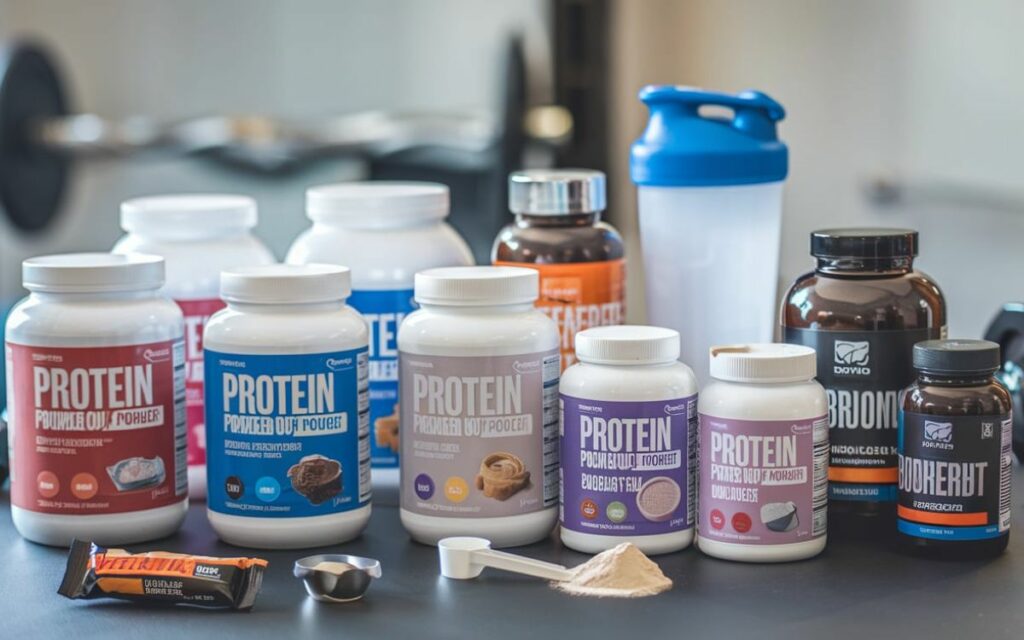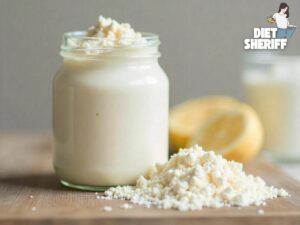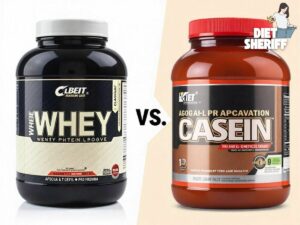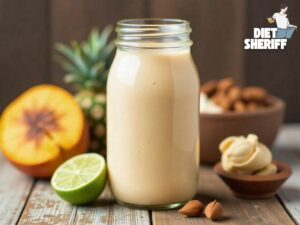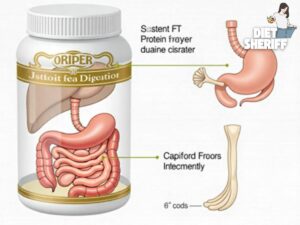Deciding whether to mix protein powder with water or milk is not merely a matter of taste preference; it involves considering various nutritional, digestive, and practical factors.
Each option presents unique benefits and potential drawbacks that can align differently with individual health goals and dietary needs. Understanding these differences is crucial for making an informed choice that maximizes the benefits of protein supplementation.
So, do you mix protein powder with water or milk?
This article delves into the comparison of mixing protein powder with water versus milk, exploring their respective advantages, disadvantages, and scenarios in which each might be the preferable option.
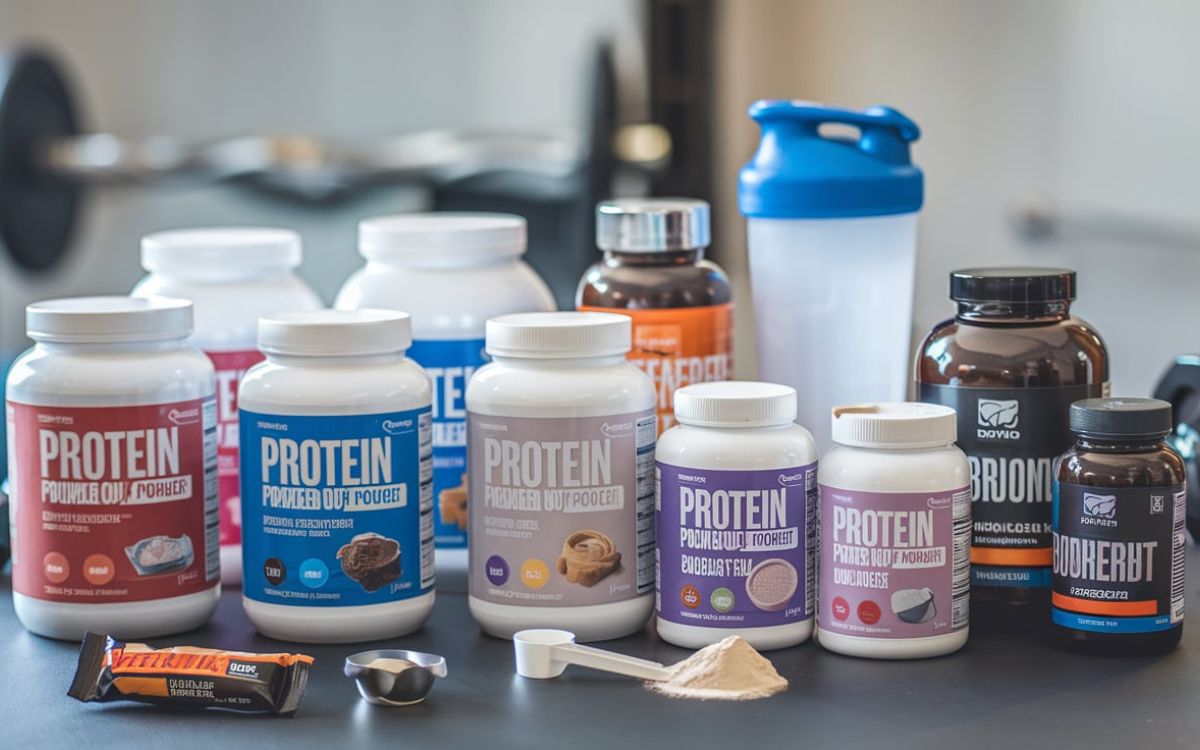
Nutritional Differences: Water vs. Milk
Firstly, let’s know about the nutritional differences between water and milk:
Calories
| Water | Milk |
| Water is calorie-free, making it an excellent option for those looking to minimize their caloric intake. This can be particularly beneficial for individuals on a weight loss plan or those trying to maintain a calorie deficit. | Milk contains calories, the amount of which varies depending on the type. For example, one cup (about 240 ml) of whole milk contains approximately 150 calories, while the same amount of skim milk has about 90 calories. Choosing milk over water will increase the total caloric content of the protein shake, which can be advantageous for those needing additional energy intake, such as athletes or individuals aiming to gain weight. |
Macronutrient Comparison: Protein
| Water | Milk |
| Mixing protein powder with water does not add any additional macronutrients. The protein, carbohydrate, and fat content will solely come from the protein powder itself. | Milk adds extra protein to the shake. A cup of whole milk typically provides around 8 grams of protein, enhancing the overall protein content of the shake. |
Macronutrients Comparison: Carbohydrates and Fats
| Water | Milk |
| Water contributes zero carbohydrates and fats, keeping the macronutrient profile of the shake as lean as possible. | Milk contains carbohydrates, mainly in the form of lactose (milk sugar). One cup of whole milk has about 12 grams of carbohydrates. This can provide a valuable energy source, especially post-workout when the body needs to replenish glycogen stores.The fat content in milk varies by type. Whole milk contains about 8 grams of fat per cup, including saturated fats. Skim milk, on the other hand, has minimal fat content. These fats can contribute to satiety and provide essential fatty acids. |
Related Articles: Premier Protein Powder vs Ready-to-Drink: Which is Right for You?
Micronutrient Benefits
| Water | Milk |
| Water does not contribute any additional vitamins or minerals to the shake. However, it does help with hydration, which is essential for overall health and the efficient functioning of bodily processes. | Calcium: Milk is a rich source of calcium, which is crucial for bone health and muscle function. One cup of milk typically provides about 30% of the daily recommended intake of calcium. Vitamin D: Many types of milk are fortified with vitamin D, which aids in calcium absorption and supports immune function. Potassium: Milk contains potassium, an essential mineral that helps regulate fluid balance, muscle contractions, and nerve signals. Other Nutrients: Milk also provides other important nutrients such as vitamin B12, riboflavin, and phosphorus, all of which play vital roles in energy metabolism and overall health. |
Related Articles: How to Mix Protein Powders without Clumping?
Benefits of Mixing Protein Powder with Water vs. Milk
Mixing Protein Powder with Water
- Lower Caloric Intake
Water has zero calories, making it an ideal choice for those looking to minimize their overall caloric intake. This is particularly beneficial for individuals on a weight loss regimen or those trying to maintain a calorie deficit.
- Faster Digestion and Absorption
Mixing protein powder with water generally results in quicker digestion and absorption. This is advantageous for post-workout recovery when the body needs nutrients rapidly to repair and build muscle.
- Convenience and Availability
Water is universally available and easy to mix with protein powder, making it a convenient option whether at home, at the gym, or on the go. There’s no need for refrigeration or special storage.
- Hydration
Using water can contribute to overall hydration, an important aspect of general health and optimal physical performance.
- Suitable for Lactose Intolerant Individuals
For those who are lactose intolerant or have dairy sensitivities, mixing protein powder with water avoids potential digestive discomfort associated with milk.
Mixing Protein Powder with Milk
- Enhanced Nutritional Profile
Milk adds additional macronutrients, such as carbohydrates and fats, as well as essential vitamins and minerals like calcium, vitamin D, and potassium. This can be beneficial for individuals needing more comprehensive nutrition in their diet.
- Improved Taste and Texture
Milk tends to enhance the flavor and texture of protein shakes, making them creamier and more palatable. This can be a deciding factor for those who find the taste of protein powder mixed with water unappealing.
- Increased Satiety
The added fat and protein in milk can help increase feelings of fullness and satiety, making it a better option for meal replacements or snacks that keep hunger at bay longer.
- Additional Protein
Milk itself contains protein, which can further boost the protein content of the shake. This is particularly useful for those aiming to meet higher protein requirements for muscle building or maintenance.
- Bone Health
The calcium and vitamin D in milk contribute to bone health, which can be an added benefit for those looking to support their skeletal system along with their muscle development.
Related Articles: Are Protein Shakes Good For Post-workout Recovery?
What Should You Choose: Water or Milk
Choosing between mixing protein powder with water or milk depends on your individual goals, dietary needs, and personal preferences. Here’s a detailed guide to help you make an informed decision:
When to Choose Water
- Weight Management
If you’re trying to lose weight or maintain a low-calorie diet, water is the best option because it adds no additional calories.
- Quick Digestion and Absorption
For those who need rapid protein uptake post-workout, water facilitates faster digestion and absorption, ensuring quick delivery of nutrients to muscles.
- Lactose Intolerance or Dairy Sensitivity
Individuals who are lactose intolerant or have dairy allergies should opt for water to avoid digestive discomfort.
- Hydration
Water can help maintain hydration levels, which is crucial for overall health and physical performance.
- Convenience
Water is readily available and doesn’t require refrigeration, making it a convenient choice for mixing protein shakes anytime and anywhere.
Related Articles: Are Plant-based Protein Powers Effective? Worth Tips
When to Choose Milk
- Enhanced Nutritional Profile
Milk adds additional nutrients like carbohydrates, fats, calcium, vitamin D, and potassium, which can be beneficial for those needing more comprehensive nutrition.
- Improved Taste and Texture
If you find protein powder mixed with water unpalatable, milk can enhance the flavor and provide a creamier texture.
- Increased Satiety
The added fat and protein in milk can help you feel fuller for longer, making it a good option for meal replacements or snacks that curb hunger diet sheriff.
- Additional Protein
Milk provides extra protein, which can be advantageous for those aiming to increase their daily protein intake for muscle building or maintenance.
- Bone Health
The calcium and vitamin D in milk support bone health, adding an extra benefit for those concerned with maintaining strong bones.
Explore Also:
Creativehouseblog
Gigasecurehome
Mycleanseplan
Frequently Asked Questions (FAQs)
Q: Which is better for weight loss, water or milk?
A: Water is better for weight loss because it is calorie-free, helping to minimize overall caloric intake.
Q: Does milk enhance the taste of protein shakes?
A: Yes, milk often enhances the flavor and provides a creamier texture compared to water.
Q: Can I mix protein powder with non-dairy milk alternatives?
A: Yes, non-dairy milk alternatives like almond, soy, or oat milk can be used and offer different nutritional profiles.
Q: I experience digestive discomfort after drinking my protein shake with milk.
A: Consider using water or a lactose-free milk alternative to avoid potential lactose intolerance issues.

